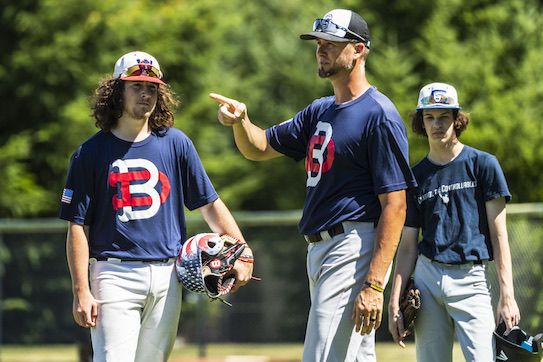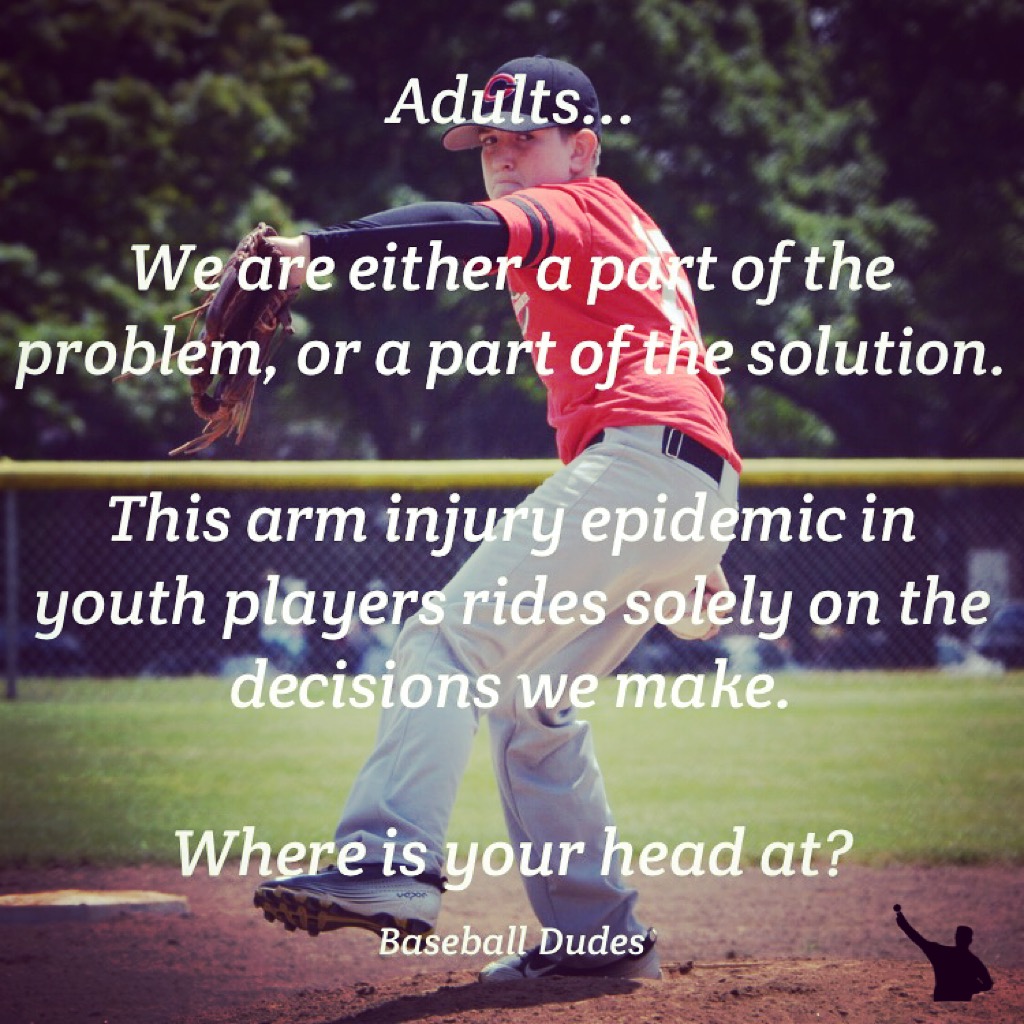 Before I get into it, let’s get some things very clear right out the gate. Baseball is the best game on earth. If you can’t tell by now, I am very passionate about teaching it and feel very strongly about the life lessons it can teach. Respecting the game, our opponents, the umpires, our teammates, the fans and our players and their parents is a big deal to me. It’s a game that’s played to win but that shouldn’t be the end all. The safety, future and health of our young players bodies and arms should be a major concern. Through experience, I have seen that health is the number one cause of most players never reaching their full potential. And last, this is about more than just developing ball players, this is about developing people.
Before I get into it, let’s get some things very clear right out the gate. Baseball is the best game on earth. If you can’t tell by now, I am very passionate about teaching it and feel very strongly about the life lessons it can teach. Respecting the game, our opponents, the umpires, our teammates, the fans and our players and their parents is a big deal to me. It’s a game that’s played to win but that shouldn’t be the end all. The safety, future and health of our young players bodies and arms should be a major concern. Through experience, I have seen that health is the number one cause of most players never reaching their full potential. And last, this is about more than just developing ball players, this is about developing people.
My Disclaimer** The points brought up below are facts and truth about what’s going on out there. I will add my opinion of why I see it as a “Pro” or “Con” and please understand it is simply my opinion and you don’t need to or have to agree.
Okay, let’s get into it. Tournament Baseball. Yes, I know, now many are thinking “Here we go again!” I’m not going to bash it. I’m not going to call anyone out (but if you take something personal, then maybe it’s something you need to think about). And I’m not going to shy away from truth. Some things just need to be brought up.
Here we go…
PROS…
• Work Ethic.
My Opinion: This style of Baseball is taken more serious. With the amount of hours put into training, some will develop very strong work habits over the years which as we as adults know, is a necessary trait for long term success.
• Reps for Hitters.
My Opinion: With so many more games scheduled to play compared to local Little Leagues and Rec Leagues, hitters get way more swings thus leading to more experience and a better chance at reaching their potential quicker.
• More innings for Pitchers.
My Opinion: Just as with the hitters, this style gives pitchers a better opportunity to throw more innings thus gaining more experience.
• Life Experience.
My Opinion: Getting to travel your state, your region and sometimes other parts of the country can be such a fun and special experience for those involved.
• Better Coaching.
My Opinion: Overall, this style is more serious simply because you have more coaches who have some sort of experience in the game. You may see better hitters, better pitching and better fundamentals.
• Teamwork.
My Opinion: To be successful tournament after tournament, a group needs to work as one (unless there is a handful on a team that is so overpowering against their competition, then a team can get away from riding their talent for a weekend). Learning to work together, picking each other up and becoming selfless can be taught a lot quicker in this atmosphere.
• Family Atmosphere.
My Opinion: When on weekend trips as a group, often we hear about team functions and gatherings. When asking players what was their most enjoyable time of the weekend, many will talk about their time together with their friends/teammates. When you sit back and look at a young persons life, it’s moments like this that they will remember most.
CONS…
• Accountability.
My Opinion: There is no one making sure that the adults are not overusing and abusing players bodies and arms. From catchers catching way too many pitches/games in a weekend to pitchers throwing too many pitches in a single inning, a single game, pitching twice in a day, pitching back to back days, pitching 3 days in a row, catching and pitching in the same game/day and throwing way too many breaking balls taking away from the development of fastballs and change ups.
• Innings and outs limits and not pitch count limits for pitchers.
My Opinion: Adults will, and are, completely abusing this. Even if they know their stud pitcher shouldn’t be pitching that day, they want to win so badly, they will push common sense to the side and make poor decision after poor decision while showing no concern for that players arm health and future.
• No inning/pitch limits for catchers.
My Opinion: Again, common sense. For every pitch made, that’s a throw back and a squat for that catcher. The age and physical strength of a KID doesn’t matter. Just as a pitcher should be limited to pitches thrown in a game/weekend, so should a catcher and the number of pitches/games caught.
• Infatuated with getting to third base.
My Opinion: Wanting to get to third base so badly so we are that much closer to scoring. A walk or a single turns into that runner on third base within the next two pitches. On a small field, the chances of throwing out a runner are so slim that the adults are abusing the opportunity. With this, we are seeing that players are missing out on learning valuable base running skills like primary and secondary leads, reading the angle of the ball out of the pitchers hand, anticipating the ball in the dirt, being prepared to read the ball off the bat and going first to third or second to home.
• Water downed coaching.
My Opinion: With so many teams you need so many coaches and with this there seems to be a major lack of experience leading the players.
• Water downed competition.
My Opinion: Many leave Little League and Rec baseball because of the quality of talent but now we are seeing teams, with there being so many teams, that may have a few of those talented players and then the rest are just like those in the other leagues that these families left. With this, you see teams with overwhelming win/loss records because they may have better coaching, or faster athletes to steal more bases, and a few more of those talented players.
• Not enough pitchers and catchers.
My Opinion: A team should never go into a tournament with any less than 8 pitchers who can give you multiple innings and at least 3 catchers. Unfortunately, many will ride just a handful of pitchers and 1-2 catchers for a whole weekend, 2-3 days, which will undoubtedly lead to overuse and fatigue.
• Too much.
My Opinion: 5 to 7 games over a 2 to 3 day period is simply too much or even worse, playing 10+ games in a 5 day period. Pitchers throwing too much (innings pitched on top of all of the other throws made during the weekend), catchers end up catching too much and kids end up being out in the heat too long. We hear stories about those championship games on that last day and the quality of Baseball being so poor because of how much baseball these kids have played the day(s) before and earlier that day. Again, common sense. Doesn’t anyone seeing this happen think that something doesn’t seem right? Do we really think this is quality baseball? Why are we forgetting about the young athletes bodies that are out on the fields?
• Too much time between tournaments/games scheduled.
My Opinion: For pitchers, having more than a week off between outings, let alone 2-3 weeks, is just flat out bad for the condition of their arms. Stamina is a major concern and for pitchers to maintain it, they need to be pitching weekly. Maxing out once (a weekend full of throwing the baseball) every 2-3 weeks is too much all at once and can lead to fatigue which is the number one cause of arm injuries.
• Seeding based on total runs scored.
My Opinion: Running up the score as much as you can to gain a better spot in the tournament rankings is awful when it comes to teaching the players respect of their opponents, sportsmanship and showing compassion. We are trying to build character in our players and I can’t think of much worse of a situation to instill bad qualities. Great coaches will look past seeding opportunities and do what’s right for developing that young person.
• Rain or shine play.
My Opinion: Baseball and wet do not go together. Add in near freezing temperatures and you have a miserable situation that’s not fun, not good baseball and flat out unsafe. From the pitcher throwing a slick ball and putting the hitters in danger to the pitcher not being able to get a good plant with his stride foot resulting in throwing with more arm than legs which puts more strain on the arm and players slipping all over the field. Not safe and bad baseball. These tournaments are so concerned with possibly having to refund money that these ridiculous rules of playing no matter what the conditions are set and once again the kids health and what’s best for them is an after thought.
• Trophy Chasing.
My Opinion: GREED & EGO! Adults being so consumed with winning some tournament or some national ranking, that decisions are made and actions are taken that are not good for the players physical and mental well-being. Berating, belittling, benching because of an error, pulling players off the field in the middle of an inning, limited to no playing time, adding players to the roster when there is no need for additional players and then giving those new players playing time and benching the players that have been with the team since the beginning and the blatant overusing of players all for a win. These are kids playing a game but too many adults treat it like they are running a MLB team. A month, year, 5 years from now they will most likely barely remember, if at all, this year of their life. But we know the adults will! My question is, what’s more important for their future? The lessons, skills and character traits they can learn and develop from this game and their time on the field OR winning a youth game, tournament or what their national ranking was when they were 12?
These are just a few things that come to my mind at the moment.
Bottom line, the right coach WILL make all the difference in the world. Their approach, true Development OR win at all costs, is the game changer. Everyone is seeking something different and when you get yourself into a bad situation, which you knew was a possibility, there’s only one person to be frustrated with. Word of mouth is key. Ask around. Hear what others are/have experienced. Observe, go and watch them practice and play. Do your due diligence.
There are programs out there that teach the kids the game. They provide opportunity at multiple positions so that they (the players) can see and learn the game from multiple angles so to be better prepared, and have more options as a player, when they reach the high school level and possibly beyond. They take care of their pitchers and catchers arms and bodies. They teach the kids how to run bases properly. They give heavy focus on the fundamentals. They instill confidence daily. They are out there but unfortunately, they are few and far between.
Parents, be patient, beware of status, take your time and find one. While searching, always remember this…Without opportunity, development is impossible. Find those that provide it!
So in closing, someone asked, “Is Tournament Baseball a good or bad thing?” The answer is no, it’s not a bad thing, but it creates situations that if handled poorly can be detrimental to your players mental and physical well being.
I can’t stress enough the importance of finding the right situation. Don’t be so quick to go with just anyone.
I hope this helps some of the young parents out there just getting into the youth baseball world and I hope this opens some eyes of those currently in this world about some of the bigger issues that are happening every weekend in cities across the nation.
 Chris Gissell (168 Posts)
Chris Gissell (168 Posts)Founder of Baseball Dudes. Blessed with three beautiful children and an amazing wife. Baseball is my life, after my family, and I love sharing what I have learned from it. Thanks for taking the time to view what we offer here at Baseball Dudes.
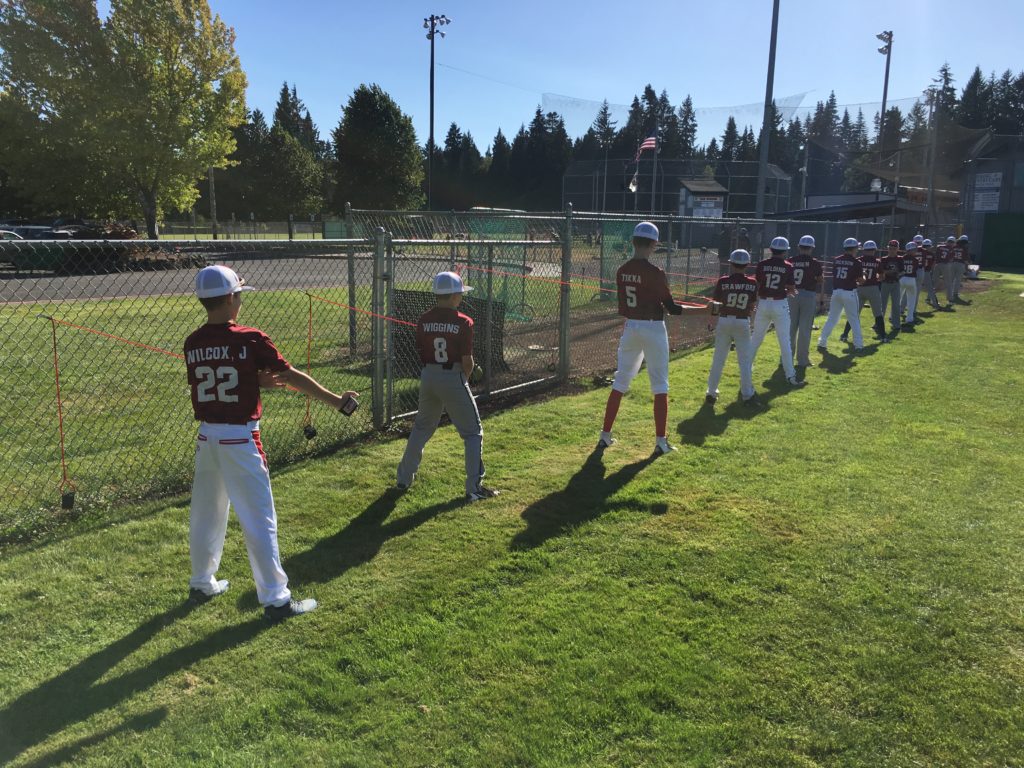 It’s been asked so many times, it’s hard to keep track of.
It’s been asked so many times, it’s hard to keep track of. 




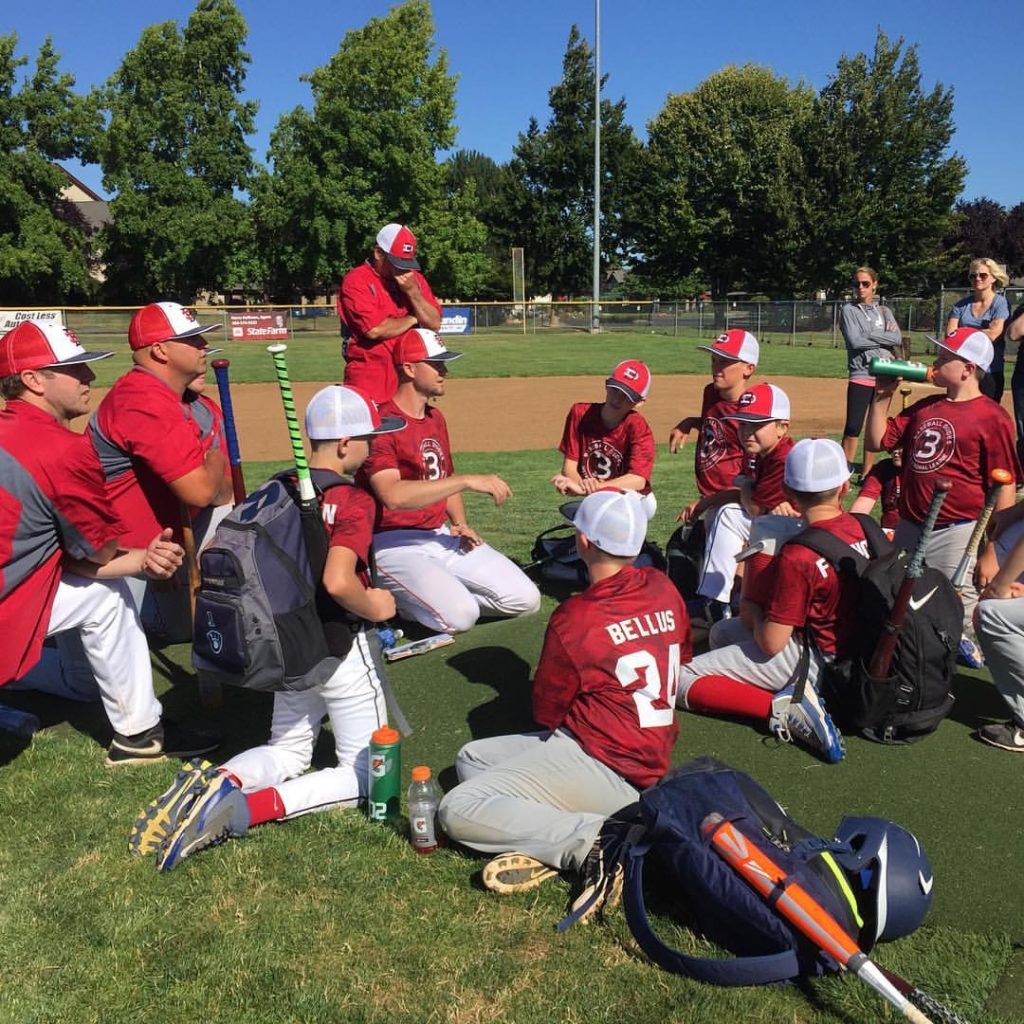 A former teammate of mine posted on social media the other day with a short but powerful message…
A former teammate of mine posted on social media the other day with a short but powerful message…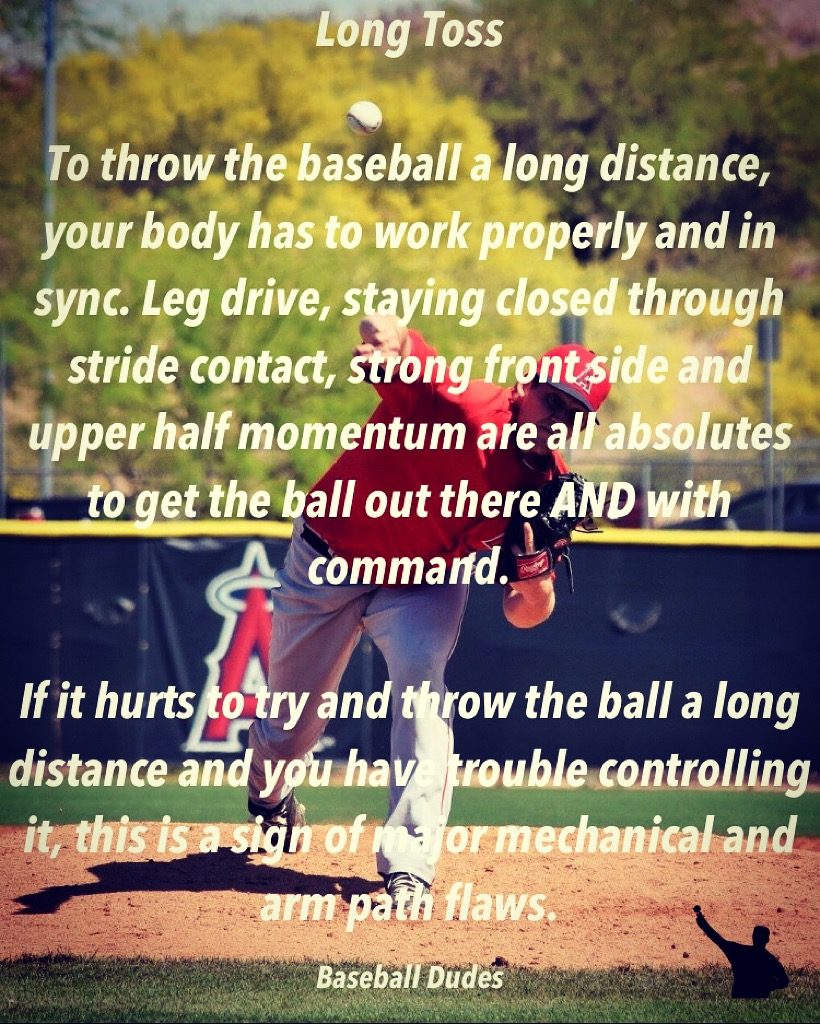 Who is available to pitch today? Who is going to start on the mound? How many pitches can they throw? How many innings can they throw? How many innings would we like them to get on the mound this year? These are legitimate questions that run through the mind of professional pitching coaches and managers on a daily basis.
Who is available to pitch today? Who is going to start on the mound? How many pitches can they throw? How many innings can they throw? How many innings would we like them to get on the mound this year? These are legitimate questions that run through the mind of professional pitching coaches and managers on a daily basis.  Before I get into it, let’s get some things very clear right out the gate. Baseball is the best game on earth. If you can’t tell by now, I am very passionate about teaching it and feel very strongly about the life lessons it can teach. Respecting the game, our opponents, the umpires, our teammates, the fans and our players and their parents is a big deal to me. It’s a game that’s played to win but that shouldn’t be the end all. The safety, future and health of our young players bodies and arms should be a major concern. Through experience, I have seen that health is the number one cause of most players never reaching their full potential. And last, this is about more than just developing ball players, this is about developing people.
Before I get into it, let’s get some things very clear right out the gate. Baseball is the best game on earth. If you can’t tell by now, I am very passionate about teaching it and feel very strongly about the life lessons it can teach. Respecting the game, our opponents, the umpires, our teammates, the fans and our players and their parents is a big deal to me. It’s a game that’s played to win but that shouldn’t be the end all. The safety, future and health of our young players bodies and arms should be a major concern. Through experience, I have seen that health is the number one cause of most players never reaching their full potential. And last, this is about more than just developing ball players, this is about developing people. 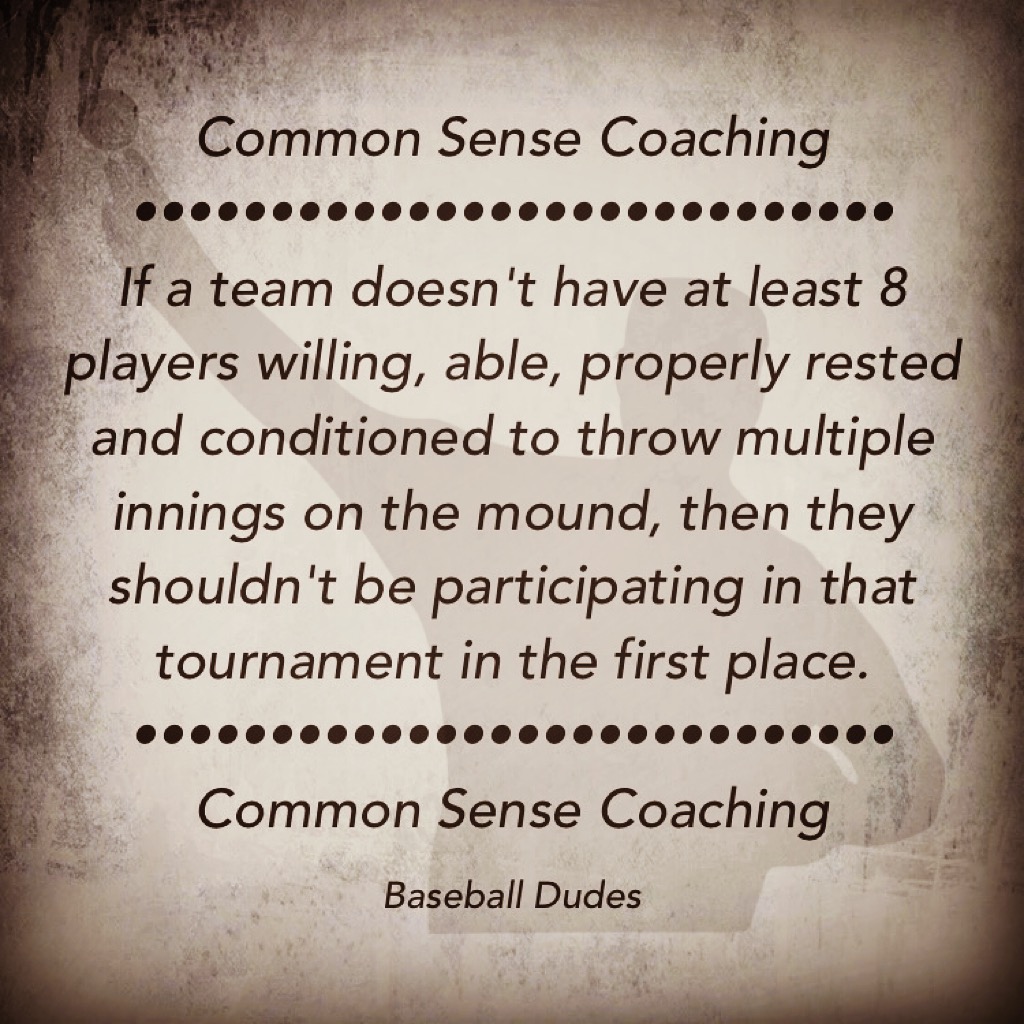 In 2012 I accepted a minor league pitching coach position with the LA Angels. I spent the next 3 years around some great Baseball minds, learned a ton about development but was slapped in the face when over 50% of our new draftees each year came in with a zipper on their arm (that’s a name for the Tommy John surgery scar). What the heck is going on??
In 2012 I accepted a minor league pitching coach position with the LA Angels. I spent the next 3 years around some great Baseball minds, learned a ton about development but was slapped in the face when over 50% of our new draftees each year came in with a zipper on their arm (that’s a name for the Tommy John surgery scar). What the heck is going on??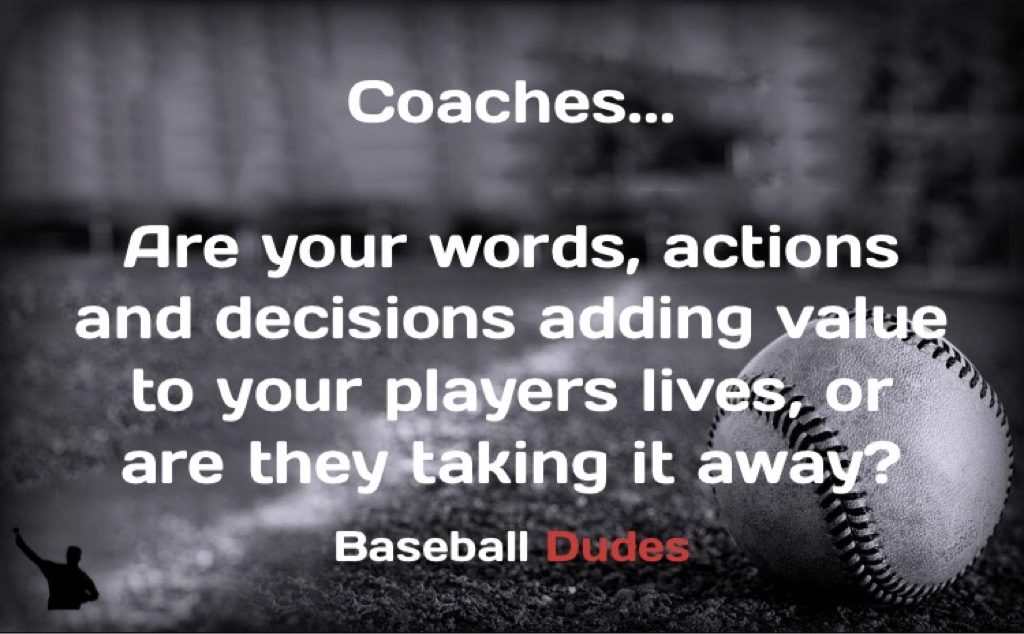 Last Saturday after my oldest sons game, he’s 13, we had our usual post game discussion to cover areas we need to keep working on and areas that they are improving at and doing well. There are three of us coaches (I’m not the head coach, just there to help when I can) and it makes me very happy to hear the message the other coaches are giving these young ones.
Last Saturday after my oldest sons game, he’s 13, we had our usual post game discussion to cover areas we need to keep working on and areas that they are improving at and doing well. There are three of us coaches (I’m not the head coach, just there to help when I can) and it makes me very happy to hear the message the other coaches are giving these young ones.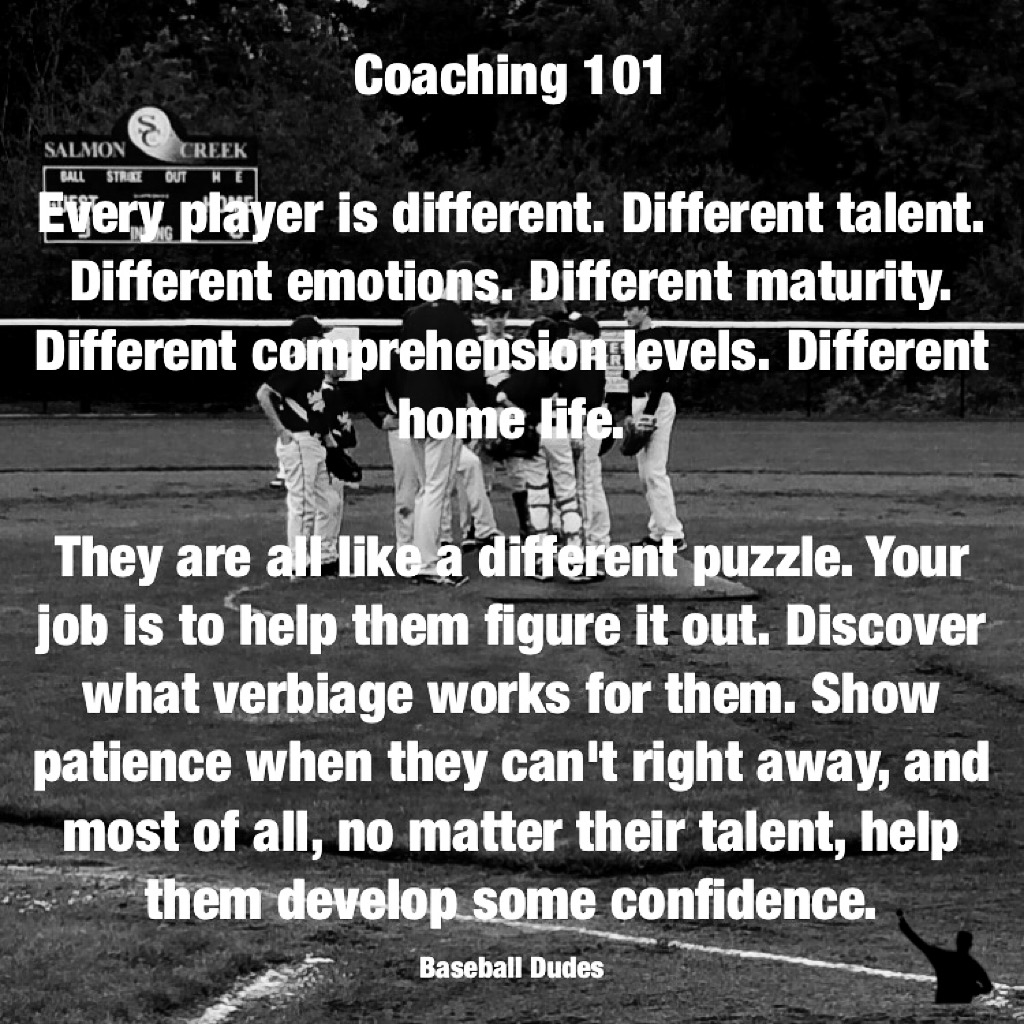 This question comes up every once in a while…
This question comes up every once in a while…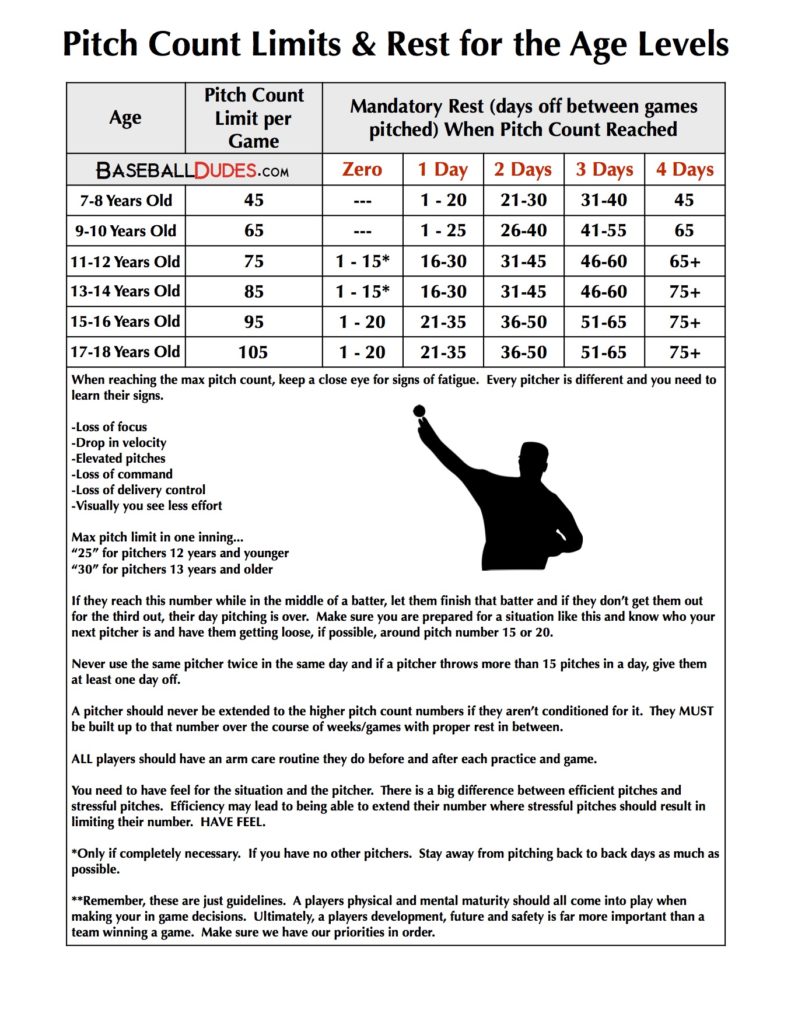 With the 3 day holiday weekend approaching (Memorial Day Weekend), there is a lot of baseball that’s going to be played across the nation.
With the 3 day holiday weekend approaching (Memorial Day Weekend), there is a lot of baseball that’s going to be played across the nation.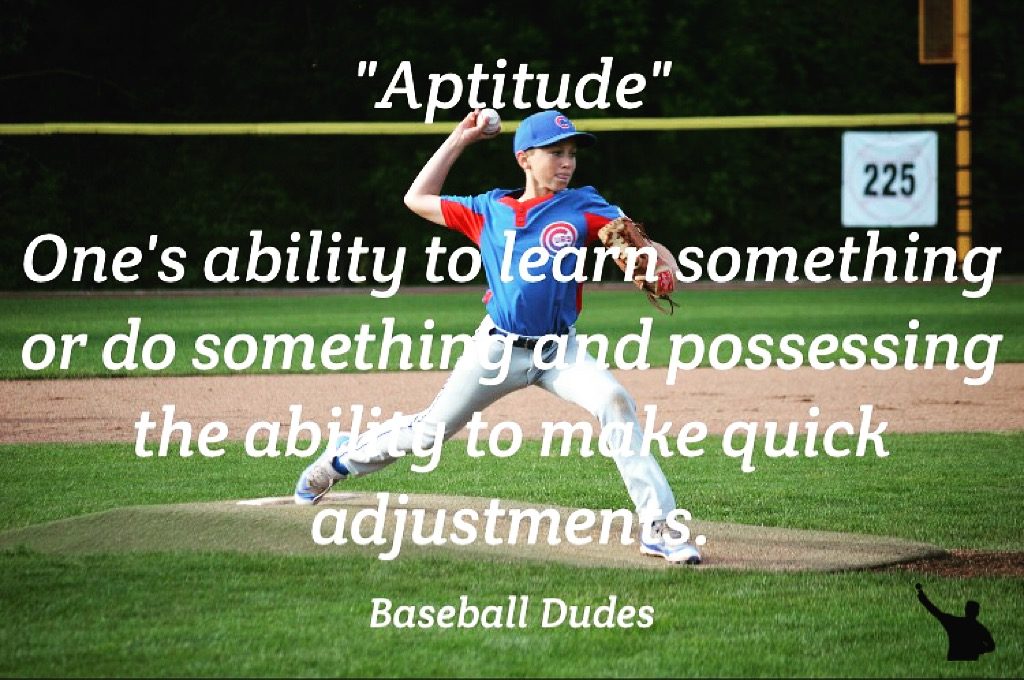 This word is used often amongst coaches at the higher levels of this game.
This word is used often amongst coaches at the higher levels of this game. I first experienced “Dead Arm” as a young professional. It’s painful. It’s annoying. If it gets bad enough, it feels like your arm will break at any moment with each throw. It can even wake you up at night. It sucks!!
I first experienced “Dead Arm” as a young professional. It’s painful. It’s annoying. If it gets bad enough, it feels like your arm will break at any moment with each throw. It can even wake you up at night. It sucks!!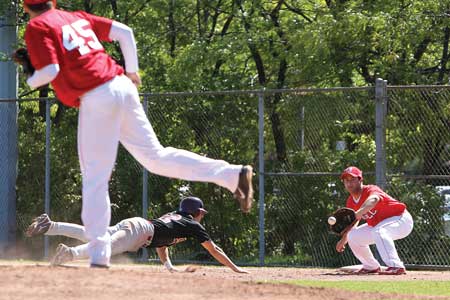 Such an important piece as our young ones are preparing for their baseball life on the big field and their High School career and hopefully beyond.
Such an important piece as our young ones are preparing for their baseball life on the big field and their High School career and hopefully beyond. Having had many teammates and many coaches, there’s one common theme with the best. The ones who saw more long term success. The coaches who had the most trust from their players.
Having had many teammates and many coaches, there’s one common theme with the best. The ones who saw more long term success. The coaches who had the most trust from their players. There are plenty of different Change Up grips to try/use.
There are plenty of different Change Up grips to try/use.
 The first time I heard this was during my first year coaching. It took me a while to really understand this. Now, this thought runs through my head nearly every day. From the students I work with, to parents, to fellow coaches and instructors, this couldn’t be any more true.
The first time I heard this was during my first year coaching. It took me a while to really understand this. Now, this thought runs through my head nearly every day. From the students I work with, to parents, to fellow coaches and instructors, this couldn’t be any more true.